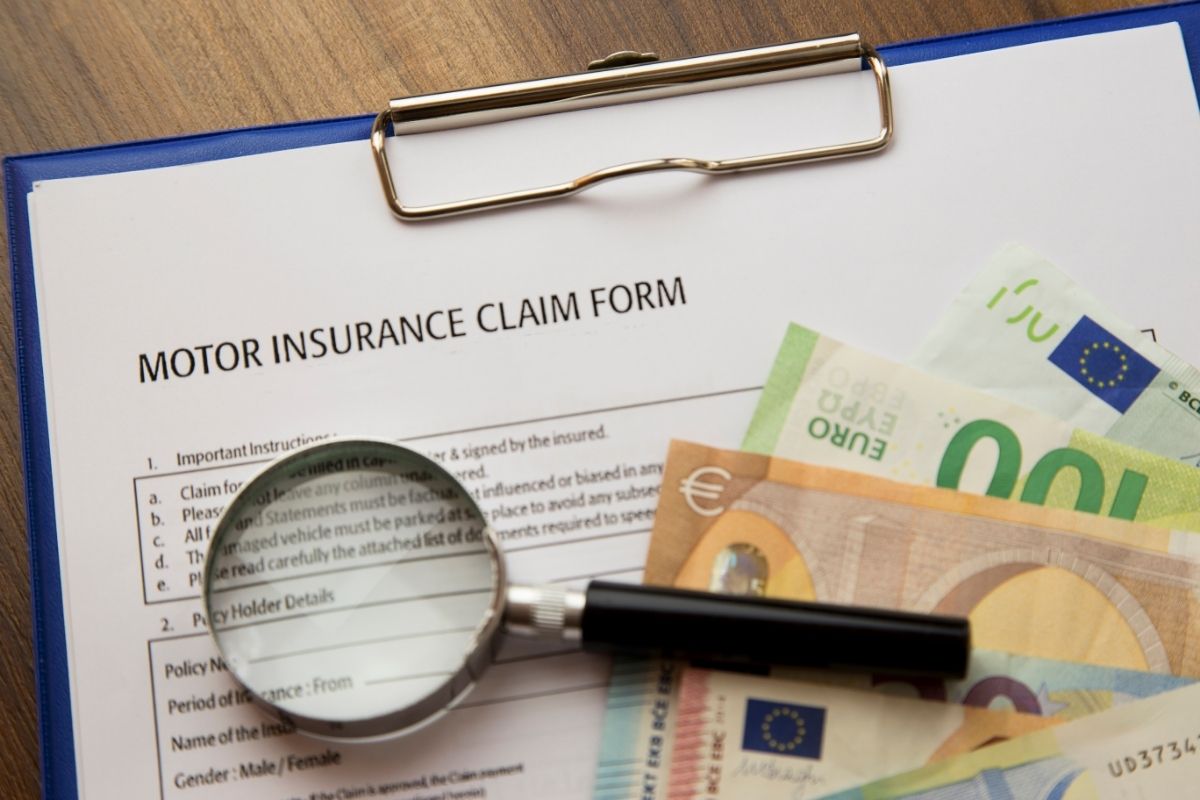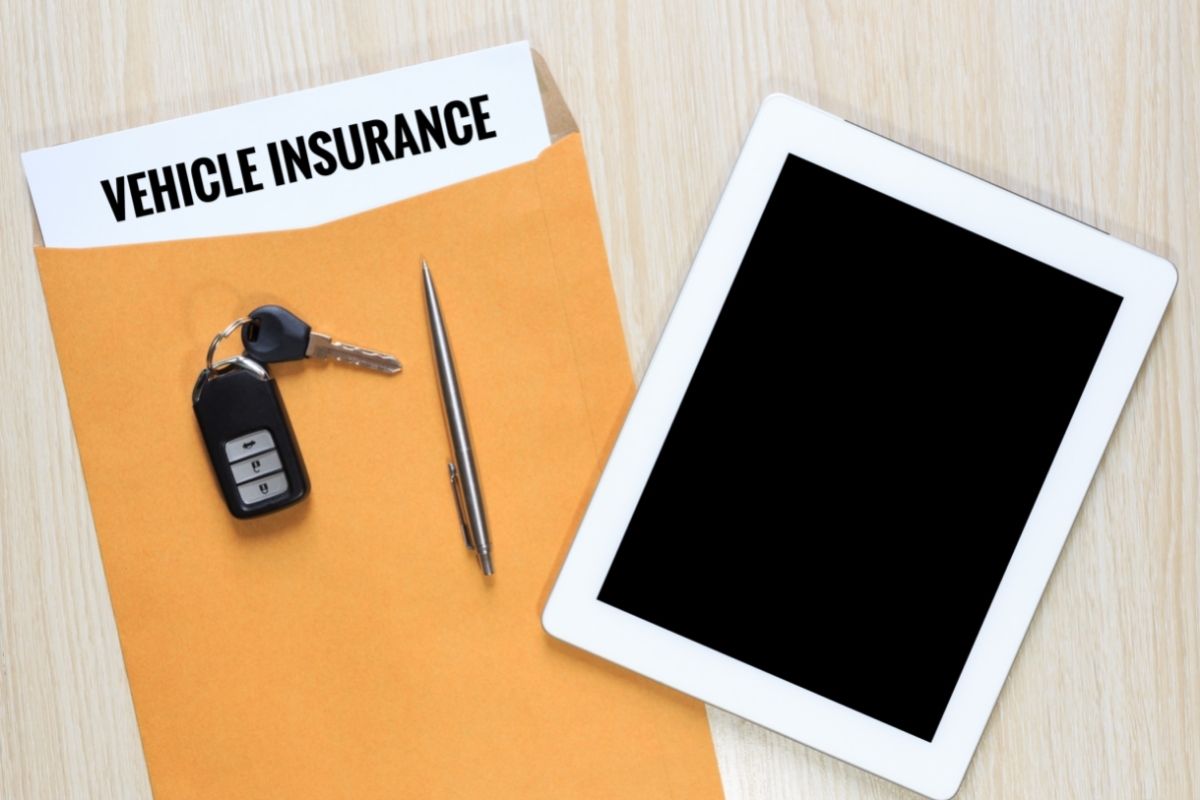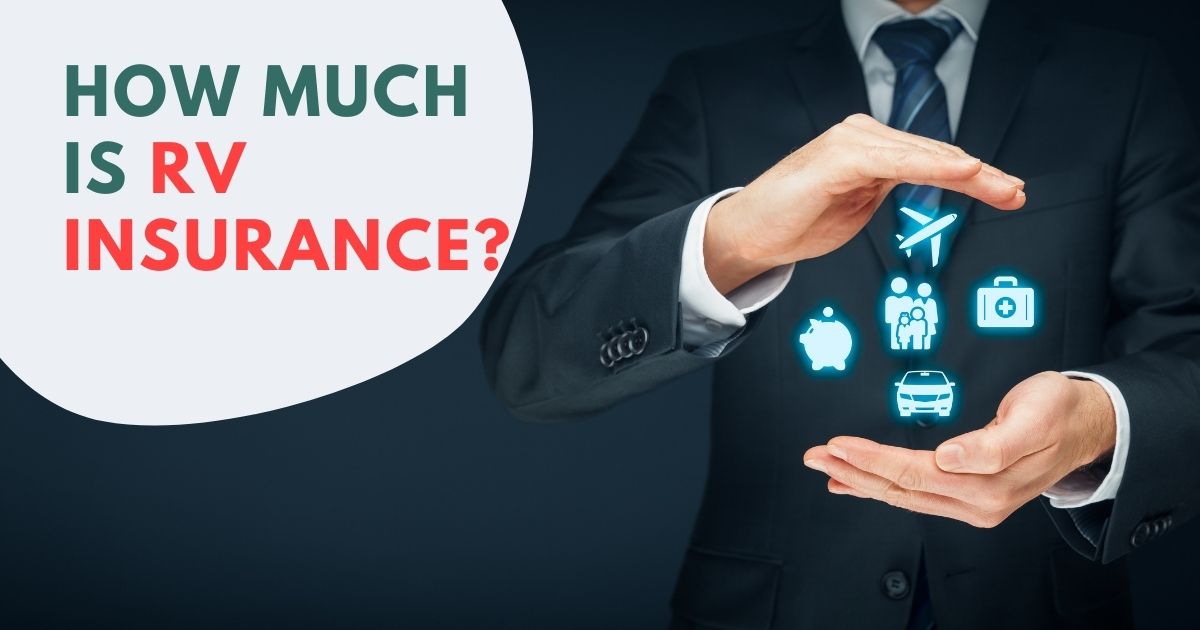What is RV Insurance?
In the same way that your auto coverage covers your vehicle, RV insurance helps safeguard your rig in the event of loss or damage. But how much is RV insurance? Read on to get more insight into all you need to understand.
RV insurance protects your personal goods in the same way as homeowners insurance does. Its objective is to safeguard your belongings in the event of an unforeseen incident.

Why Should I Get RV Insurance?
Because an RV is a vehicle, consider insurance coverage that covers comprehensive (liability) and collision accidents. However, RV insurance is more extensive than a standard auto policy because an RV is also a temporary or even permanent residence.
RV insurance combines features of both a vehicle and a homeowner’s insurance policy to create a comprehensive, tailored coverage plan.
RV insurance is a sensible step for total protection because, in addition to the fundamentals, you may choose from various alternatives and levels of coverage:
- Total loss replacement is one of the specialty RV coverage alternatives.
- Replacement of personal belongings.
- If your RV breaks down while on the road, you’ll be covered for meals, housing, and substitute transportation.
The RV lifestyle is all about getting out on the open road and enjoying the beautiful outdoors up close and personal. However, knowing that your RV, personal belongings, and wallet are all secured in the event of an incident or accident while on the road is invaluable.
Insurance coverage for full-time RVers has you covered with even more personalized options:
- Liability (personal injury or property damage) in the event of an accident in the RV or at the campsite, as well as towing costs and damage.
- Stolen personal things that didn’t get covered by a standard homeowner’s policy.
- Comprehensive coverage against theft, vandalism, and fire
- Storage expenses.
How Much is RV Insurance?
There are various RVs, and they determine their coverage and premiums according to their classification. Different classes, therefore, have different RV insurance quotes:
Class A
We refer to Class A RVs as motorhomes. We determine their Premiums based on a number of criteria. Based on 140 days of use per year, the average yearly insurance premium for a gas-powered Class A motorhome is between $1,000 and $1300.
Class B
Camper vans, conversion vans, and motorhomes are all examples of Class B recreational vehicles. A typical vehicle insurance coverage can cover these recreational vehicles. They compute annual rates in the same manner as standard auto coverage.
These considerations include the driver’s record, the vehicle’s principal location, the vehicle’s value, the type of coverage, and the rates offered by individual insurance companies. Rates are too diverse to list due to a variety of factors.
Class C
We categorize mid-sized motorized leisure vehicles as Class C. Most motorhomes have a space above the main cab, which is commonly a bedroom area. How much is class C RV insurance? We determine premiums by state, type/frequency of use, and age/value of RV. Annual premiums go from $800 to $1,000+ on average.
Miscellaneous
Insuring fifth-wheel trailers (those fastened to the back of a truck by a hitch) and other travel trailers is less expensive. But the big question is, how much is RV trailer insurance? State, age/value, size, and usage all influence premiums. A typical policy covers the bare minimum of collision and comprehensive coverage.
For newer, more regularly used trailers, premiums can range from around $200 to over $1,000, depending on various criteria.
Discounts for Lower RV Insurance Rates
When comparing prices from multiple insurance companies, the big question may be, how much is RV insurance monthly? Make sure to account for any possible savings. You can use discounts in various ways to provide you with a very low annual premium cost. Here are some possible discounts to inquire about:
- Bundling insurance coverage: The more policies you have, the more money you can save. You can combine everything from vehicle and homeowners’ insurance to motorbike and boat insurance together. If you are the first owner of an RV, you may be eligible for a discount. When purchasing comprehensive or collision coverage for a trailer, the original owner may be eligible for a discount.
- Paying the entire annual premium in advance: Another approach to qualifying for a cheaper rate is to pay the total yearly premium in advance.
- Excellent driver: If you have had a clean driving record for at least three years, you may be eligible for a significant discount.
- Claim-free: Filing no claims means you’ll save money on new policy reductions.
- Autopay: By keeping administrative costs low, insurance firms may pass the savings on to automatically deducting premiums from your account each month. Online statements and payments save time and money, resulting in a discount.
- Nonsmoker: Some insurance companies give discounts to people who live healthy, responsible lives. Discounts for nonsmokers are something to inquire about.
- Anti-theft gadgets: Preventing theft and damage saves insurance companies hundreds of dollars each year. Any precautions taken could result in a discount. Insurance costs vary depending on underwriting variables and circumstances, such as market value vs. new RV prices, RV age, usage, location, driving record, and contents value.
RV insurance policies are as specific as your requirements. Recreational use (camping), road vacations, and full-time residence are all covered. A full-time RVers insurance coverage would be similar to a standard homeowner’s policy, covering personal liability and loss.

What Impacts the Cost of RV Insurance?
Due to the wide range of RV models and classifications and the usual factors that impact the cost of motor vehicle insurance, RV insurance policies have a wide range of prices. The following are some significant elements that influence RV insurance rates: Type, age, and condition are all factors to consider.
In general, motorhomes are more expensive to insure than travel trailers. Motorhomes (unlike travel trailers that are “towed” by another vehicle) are driven and hence require liability insurance.
Furthermore, most trailers, pop-up campers, truck camps, and fifth-wheels will cost more to replace than state-of-the-art motorhomes, and their camper insurance cost will be costly.
For example, because of the difference in resale value, a new, deluxe RV will cost more to insure than an older utility trailer. Furthermore, RV insurance is often more expensive for the largest RV, the class A motorhome, than for the smaller class C motorhome and Class B camper van.
Usage
Suppose you live in your RV for six months or more than a year. In that case, you may need to acquire extra coverages, such as personal liability, medical payments, and loss assessment coverage, which protect you in the same manner that a home’s insurance policy would.
If you use your RV for leisure purposes, you may need to notify your insurance of how many days you spend in your RV each year. Some insurers charge a higher price if you use your RV frequently.
Location
Your state area determines RV insurance premiums, and ZIP code, much like vehicle insurance. Motor vehicle accidents are more likely in densely populated locations, which raises the cost of RV insurance. Progressive RV insurance may be more expensive in areas prone to catastrophic weather and vehicle theft.
Coverage Options
If you’re financing your RV, lenders will almost always want comprehensive and collision coverage to protect your RV, which will raise the cost of your policy. If your RV gets paid in full, you can opt out of physical damage coverages to save money on your insurance.
Even if you’re not financing your trailer insurance, all travel trailer policies must contain comprehensive and collision coverage. Extra coverages such as roadside assistance, vacation liability, and total loss replacement can be beneficial, but they will increase the cost of your insurance policy.
Experience Behind the Wheel
Towing a travel trailer or driving a motorhome is an entirely different experience from driving a regular car. On average, experienced RV drivers pay less for insurance than new drivers.
Most RV insurance companies check your driving record and price your RV policy accordingly. A good driving record can help you get a better premium and discount chances depending on the insurer.
History of Claims
While RV insurance is for protecting you if your motorhome or travel trailer is damaged or you are at fault in an accident, filing too many claims with your insurer may signal that you are a risk on the road. RV insurance is often more expensive for drivers with a motor vehicle insurance claims history.
What to Look for in RV Insurance Companies
Liability insurance is required for all RVs while on the road. According to Investopedia, you should look for at least the state’s minimal liability coverage requirements.
As an illustration: If your state mandates 20/40/10 liability insurance, you must obtain $20,000 in bodily injury coverage per person, $40,000 in accident coverage, and $40,000 in property damage coverage per accident.
Your premiums will vary depending on the level of coverage you desire. Take a look at the following coverage options:
- Personal belongings coverage (theft, damage, acts of nature, or animal contact).
- Payments for medical bills.
Plan to acquire a separate auto insurance coverage for your tow vehicle, as RV insurance rarely covers it. Check your policy’s fine print to see if it will cover you for losses or damages caused by rats or insects while the vehicle is parked. Water damage of almost any kind is also not covered.
RV Insurance Coverage Features for Full-Timers
Some RV insurance covers the most delicate RV insurance features for full-timers and a range of towable houses. These insurance include personalized online quotations and member savings at partner gas stations and campgrounds. Your membership benefits grow as you spend more time on the road.
RV Insurance Coverage Add-ons for Part-Timers
Vacation liability insurance protects you from legal liability arising from injuries that occur in and around your RV. Compare prices if you plan to use your trailer seasonally to discover what the agent included — and didn’t include — in the policy.
Part-time RVers who don’t have as much personal property insurance may be eligible for lower premiums from some carriers. Some of this insurance may have valuable benefits, such as vacation liability coverage. This coverage type offers camper insurance whose protection is equivalent to a personal liability policy, but only for a limited time.
Expected Costs of RV Insurance
Several factors influence the cost of your RV’s insurance. A large, opulent Class A motorhome, for example, will be more expensive to insure than a modest pop-up trailer. Other considerations include:
- Vehicle type
- Frequency of use
- Previous claims
- Your driving records
Take advantage of our list of the best RV insurance companies for your individual needs if you’re looking for insurance for your towable house.

Get RV Insurance TODAY!
The bottom line is that, just as it is crucial to protect your home and vehicle, it is also essential to protect your financial assets. Recreational vehicle insurance is flexible and reasonably priced, and there are several opportunities to receive discounts that can help bring the annual premium even lower.
If you own a recreational vehicle, you can get a reduction in your insurance rate. Whether you’re going on a short trip or a more extended holiday, you can be confident that you’ll be covered no matter where you wind up calling home for the duration of your journey. All in all, you will need to be aware of the RV insurance cost calculator to plan your finances.
